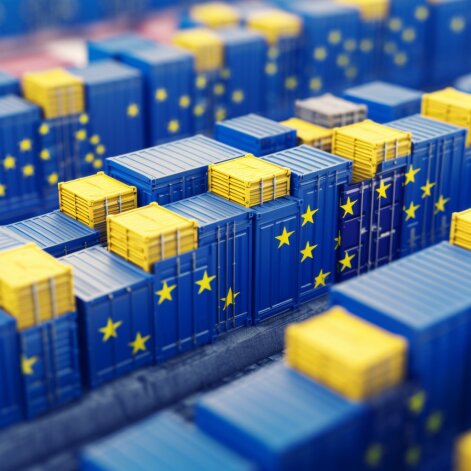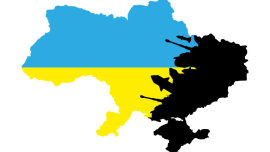Extension of EU duty-free trade with Ukraine for one year - why is it important?
Maksym Gardus, expert of Reforms Delivery Office of the Cabinet of Ministers of Ukraine
During the plenary session on May 9, the European Parliament supported a proposal to renew the suspension of import duties, anti-dumping duties and guarantees on Ukrainian exports to the European Union for another year against the background of Russia's aggressive war, which hinders Ukraine's ability to trade with the rest of the world. Why is it important and what will be the consequences.
A strong decision
The abolition of customs tariffs applies to fruits and vegetables subject to the system of setting minimum prices, as well as to agricultural products and their processed products, for which tariff quotas are established.
Starting from January 1, 2023, according to the Association Agreement between Ukraine and the EU, industrial goods are subject to zero customs duties, so they are not included in the proposal of the European Parliament.
This decision will be published in the Official Journal of the EU after its approval by the Council of the EU and will enter into force the day after publication.
On May 19, 2022, the European Parliament adopted a decision to cancel customs duties on all Ukrainian export products to the European Union for one year in order to support Ukraine's economy. It was noted in the European Parliament that such a decision is a reaction to the consequences of Russian aggression against Ukraine, which limits the country's opportunities in foreign economic relations.
According to the European Commission, the European Union is Ukraine's largest trading partner, accounting for 39.5% of its total foreign trade in 2021. Ukraine is the 15th largest trading partner of the EU and contributes about 1.2% of the total volume of EU trade.
Signal to partners
The new agreement between Ukraine and the European Union on the abolition of customs duties on Ukrainian exports to EU countries turned out to be a powerful signal of cooperation. This agreement, which came into force on June 4 last year and was extended, has a significant impact on Ukrainian manufacturers and the European market in general.
However, not all European manufacturers are happy with this decision. For example, Poles who previously protested against Ukrainian grain may continue their opposition. It is worth noting that the abolition of customs duties applies not only to grain, but also to other products, such as fruits, vegetables, metal products, etc.
Currently, the European Union is Ukraine's largest export partner. However, the restrictions concern only five EU countries and make up a small share of Ukrainian exports. African and Middle Eastern countries remain the main consumers of Ukrainian agricultural products.
In order to achieve a balance of prices and terms of trade, it is planned to revise the association agreement and the process with the EU. This process requires extensive work and coordination with all EU members. Despite some problems and accumulated distortions, Ukraine hopes that the move to the EU will help to level these situations and provide fairer conditions for both sides.
However, it should be noted that the abolition of customs duties for a certain period is a temporary measure and applies only to some EU countries. This means that the impact of these restrictions on the total volume of Ukrainian exports to the EU may be limited. In addition, the extension of the agreement for another year does not guarantee the unconditional continuation of duty-free access of Ukrainian goods to the EU market in the future.

























